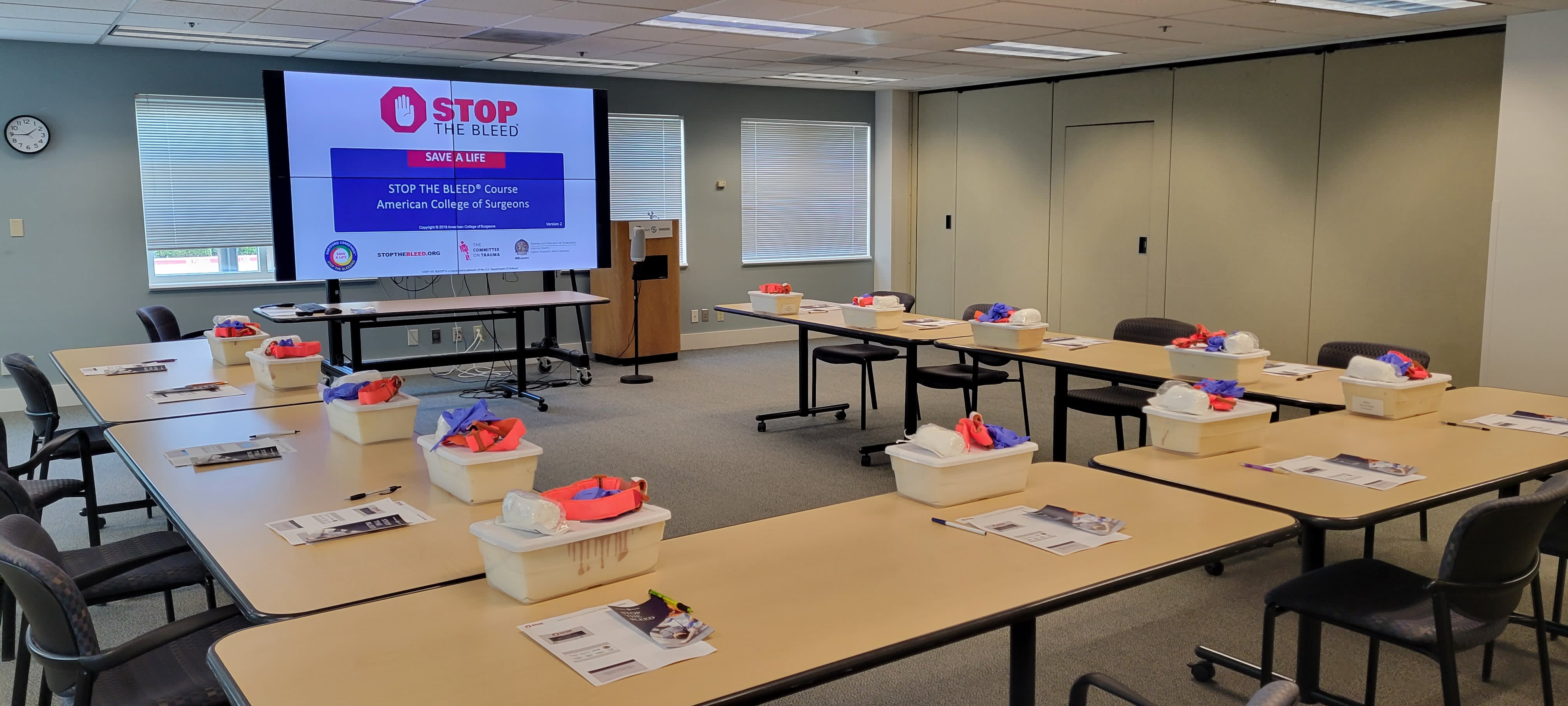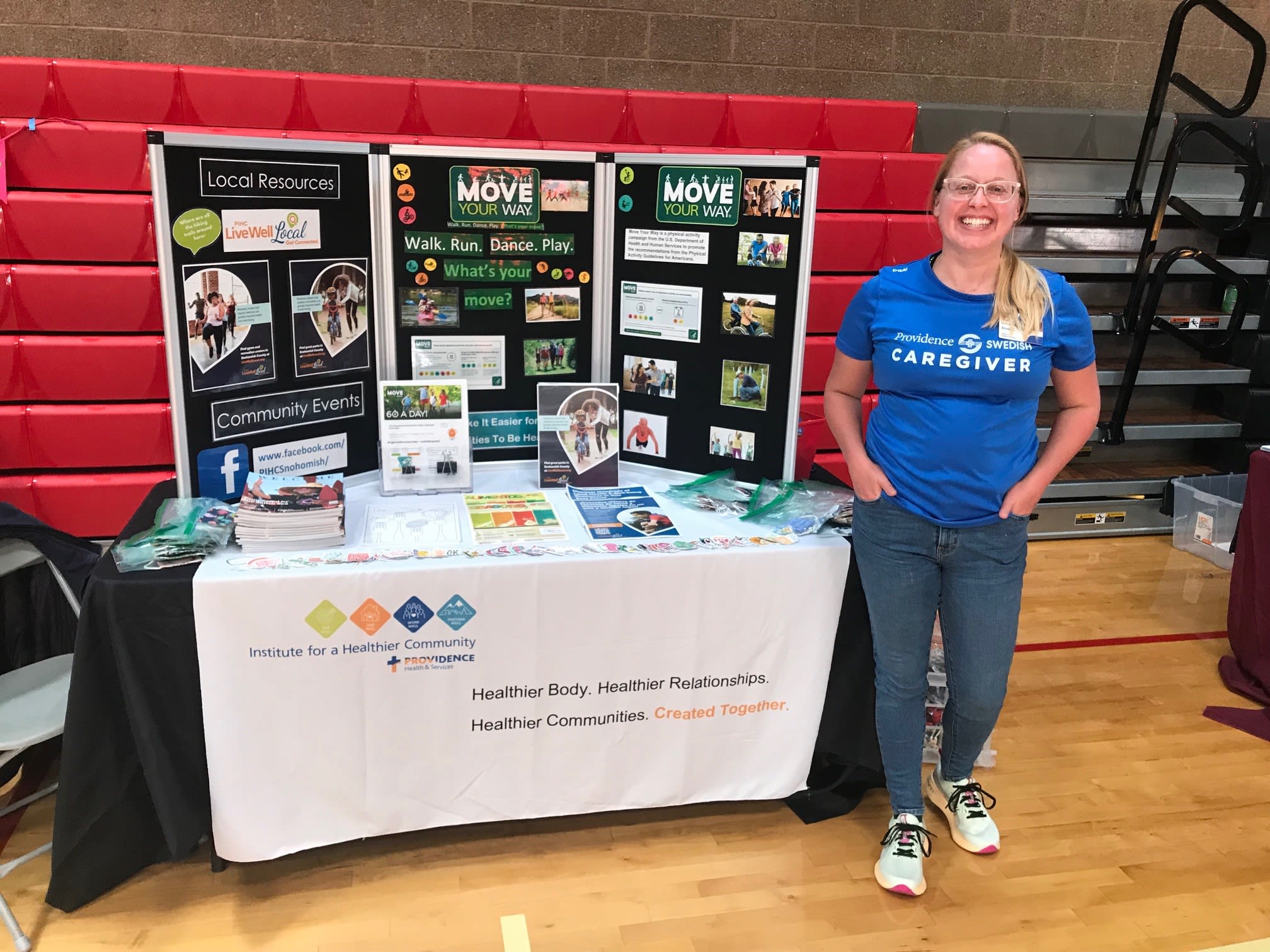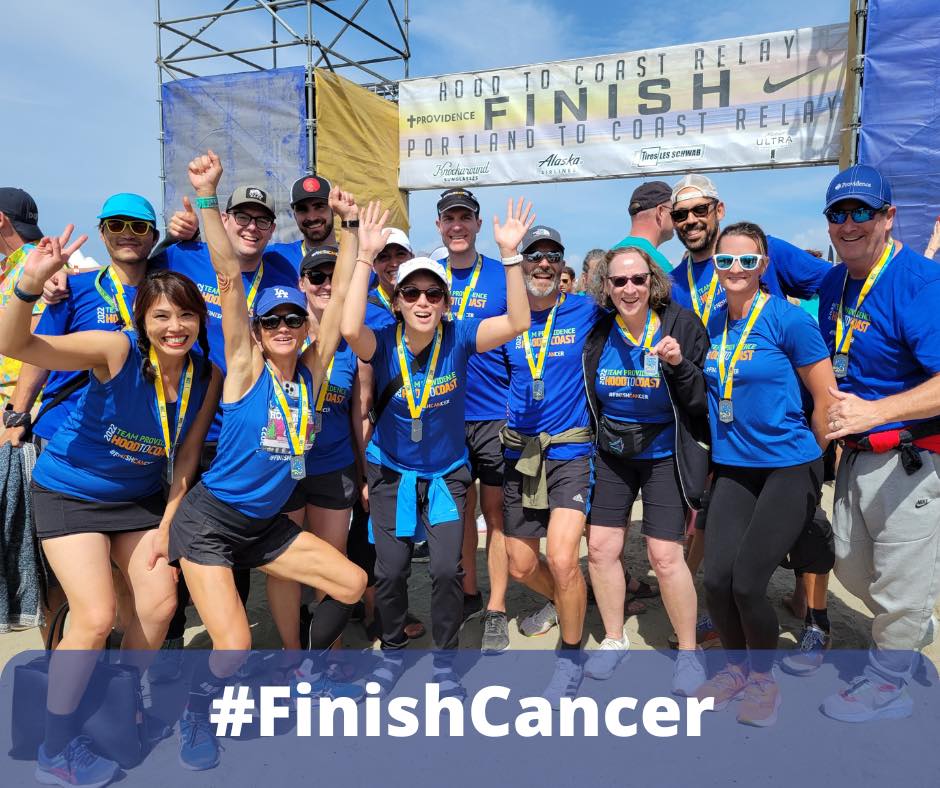The health benefits of volunteering: Doing good is good for you!
Dr. James Beckerman (center back) and colleagues on a Providence mission to Guatemala prior to the pandemic
[4 MIN READ]
In this article:
-
Dr. James Beckerman and Brittn Grey discussed the many health benefits of volunteering on a recent episode of the Heart to Start podcast.
-
Research shows that volunteering has the ability to improve both physical and mental health in profound ways.
-
Volunteering provides connection, purpose, and a reduction in stress for those who serve.
Heal it forward
At the Providence Heart to Start program, the motto is heal it forward. This striking and compelling vision inspires the programming led by Dr. James Beckerman, a cardiologist with Providence Health Institute, who uses the power of community and movement to help people become their best, healthiest selves together. As a part of Beckerman’s focus on holistic wellness, he recently hosted a Heart to Start podcast on service and volunteerism.
“One of the most impactful ways to help yourself is by helping someone else.”
-Dr. James Beckerman, cardiologist, Providence Health Institute
“Self-help can be a lonely journey sometimes. Helping others can make you healthier along the way,” Beckerman says. That’s right— volunteering doesn’t just create thriving communities – it’s also shown to have many health benefits
Doing good does help you feel better
In a recent podcast episode, Dr. Beckerman and Brittn Grey had a conversation about the health benefits of volunteering. Beckerman and Grey first met on a service immersion trip in Guatemala, forging a friendship with service as a cornerstone. Grey is the executive director of Global and Domestic Immersion Programs at Providence. She provides direction for Providence global partnerships and system level volunteer efforts.
The takeaways from their conversation were many. Keep reading to learn how volunteering can be a part of healing it forward as well as improve your own well-being.
Volunteering for Impact
Since our nation’s founding, volunteerism has played a major role in American civic life and culture. Volunteering connects people to each other and to the issues their communities face. By providing a common cause, volunteerism can help “unite people of different races, ages, religions, and sexes together.”
In the most recent Current Population Survey (CPS), they found that 30% of Americans, or 77.9 million people, volunteered their time for an organization or association in 2019. These volunteers reported serving about 5.8 billion hours, worth an estimated $147 billion in economic value.
This volunteerism has a significant impact on our communities. Having an active volunteer base in a region can contribute to its resiliency during a time of need or a crisis. In low-income and under-resourced areas, volunteerism can strengthen communities by building stronger social networks. Across the board, volunteerism is thought to play a role in fostering a sense of identity for a community as well as a stronger feeling of connection.
Volunteering improves physical health
Research shows that people who give back to their communities experience better overall health, greater life satisfaction, fewer hospitalizations, higher self-esteem, and a greater ability to manage their own chronic illnesses. Volunteering can even reduce your risk of high blood pressure, depression, and chronic pain.
The best part? This research shows that volunteering is especially beneficial for older individuals.
Volunteering enhances one’s sense of purpose
Physical health and mental health go hand in hand. And mental health is tied to a sense of purpose.
For many, serving others provides purpose.
“Volunteerism gives us a sense of purpose because it shows us our place in the world and our interconnectivity with others. We are not separate communities; we are a web of a human family.” Grey says.
We embrace this here at Providence. Since 2012, the Providence Global and Domestic Engagement (GDE) department has partnered to make health impact through programs and service that honor the leadership, expertise, and goals of communities around the globe. We live our vision of health for a better world by responding to root causes of disparities and working through local partnership to redress the health inequity created by colonialism. Caregivers participate in volunteerism across our home communities as well as with partners in countries such as Guatemala, Malawi and Nigeria. Learn more about this work here.
Volunteering strengthens organizations
Other organizations have seen the benefits of encouraging employee volunteerism, too.
Ninety-six percent of employee volunteers report having a greater sense of purpose in their lives after volunteering. They feel like they’re making an impact on their communities. They gain a sense of control over their own lives and start thinking differently about stewardship and work responsibilities. Plus, they feel more connected to team members.
Brittn Grey (left) with colleague Gladis Juc from Medical Teams International on a service trip she shared with Dr. Beckerman
Volunteering bolsters connection
Volunteerism at its best is based on solidarity. It’s not a matter of helping others, but of serving them. Service, Grey says, is about members of the same human family coming together in partnership to work toward shared goals. This makes it mutually meaningful.
Grey had a powerful personal experience as a volunteer for Providence’s hospice care. Her job was to call individuals whose loved ones had died while in hospice. She asked them how they were doing and connected them with Providence’s hospice grief counseling services. Many strangers opened their hearts to her.
“I would leave the facility where I did that volunteering feeling so alive,” Grey says. Opportunities of service and connection set a “fire within us [of] compassion, gratitude, and a desire to walk with one another,” she noted.
Volunteering encourages presence
Volunteering takes us out of our day-to-day, helping us to live in the present. This effect rings true whether you’re speaking to someone grieving a tragic loss or filling boxes at a food bank.
“You find yourself so a part of those moments and so in tune with them. People talk about being distracted at their jobs sometimes, but people don’t get distracted when they volunteer. There’s something bigger than they are resonating with,” Beckerman says.
Volunteering reduces stress
It’s well known that chronic stress can cause an array of health issues. Volunteering can help reduce stress.
“There is a lot of data out there that volunteerism and service is good for your mind and for your body,” Grey says. The folks she speaks with after their volunteering experiences report back those benefits, too.
Grey herself agrees. Many, including Grey, feel inspired and heartened by the ways other people overcome their obstacles.
“I am uplifted by opportunities for presence and connection that are outside of my day-to-day,” Grey says. “It helps me realize my problems are small or that I have the strength to overcome them. All of that works to decrease my stress, improve my sleep and [helps me] go back to making a difference.”
How to get involved
Volunteering opportunities are all around us.
“You can find these opportunities wherever you are. Possibly as a part of your workplace, but elsewhere as well,” Beckerman says.
Why not find an opportunity to serve today? There’s a volunteer opportunity for every skill set, from tutoring students to rebuilding homes. Start with a quick Google search: “Volunteer opportunities near me.” VolunteerMatch and the United Way are also great sources to connect you to your next service activity.
It will bolster the health of the community and your health, too.
Visit our Annual Report to our Communities page
To learn more about what we’re doing to help our caregivers and other community partners, check out our Annual Report to our Communities.
Related resources
The power of partnership: strengthening global health, together
SeaView recovery housing gives individuals a safe place to heal
How Providence sustained thriving global partnerships in a pandemic
This information is not intended as a substitute for professional medical care. Always follow your health care professional's instructions.



